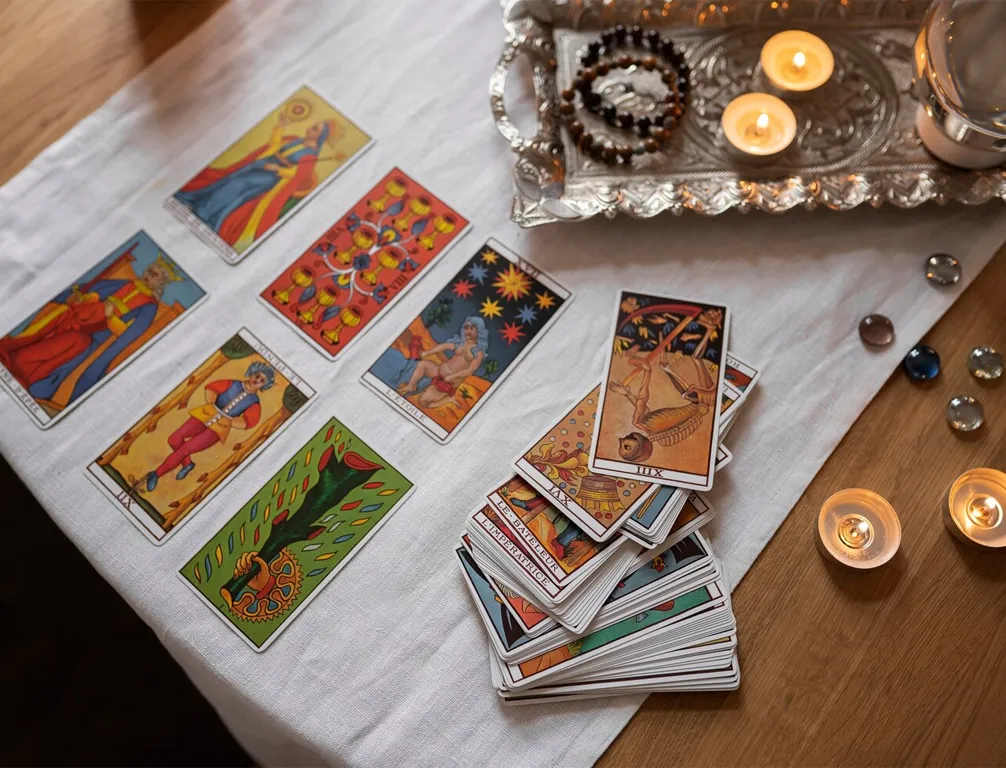Blog
What Are Tarot Cards and How Do They Work?

If you’ve ever sat across from someone shuffling a deck of worn, illustrated cards, you’ll know the peculiar mix of curiosity and apprehension that comes with a tarot reading. I still remember my first real reading—April 2013, at a cramped café near Grant Road Station in Mumbai. The reader, Anita Joshi, had a soft voice but eyes that pinned you in place. She fanned out the cards on a red silk cloth, and it wasn’t so much what she said but how she said it that made me feel as if the air had thickened.
So, what exactly are tarot cards? At their core, tarot is a structured deck of 78 cards, split into two main categories: the Major Arcana and the Minor Arcana. The Majors—like The Fool, Death, or The High Priestess—represent significant archetypes and life themes. The Minors, much like regular playing cards, are divided into suits (Cups, Pentacles, Swords, and Wands) and depict day-to-day events, emotions, and choices.
It’s not magic in the Harry Potter sense. And it’s not fortune-telling in the “your train will be delayed at 4:15 PM on Tuesday” way either. Instead, tarot operates as a mirror. It reflects patterns, possibilities, and subconscious undercurrents that might otherwise go unnoticed. A reading can reveal things you already know deep down but haven’t yet faced.
One thing people misunderstand—tarot isn’t random guesswork. Even though you shuffle and pull cards seemingly by chance, the act itself is part of the process. Readers talk about synchronicity: the idea that the right card appears at the right time because of an unseen connection between the seeker, the cards, and the moment. Sounds strange until you experience it.
I’ve seen it firsthand. Once, during a reading for my friend Rishi in 2018, he pulled the Ten of Swords. Not a cheerful card—it’s literally a man lying face down with ten blades in his back. Rishi laughed it off, said he was fine. A week later, he quit his job after a brutal confrontation with his manager. He admitted later that the card had been nagging at him.
Some readers work intuitively, focusing on imagery, color symbolism, and gut feelings. Others rely on established systems—memorized meanings, numerology, even astrology overlays. Personally, I fall somewhere in between. I’ll note that the Seven of Cups often speaks to illusions or too many choices, but if the artwork shows a shadowy figure staring into a mist, I’ll weave that into the reading too.
Here’s an odd analogy that’s always made sense to me: reading tarot is like tuning an old radio. The station is already broadcasting—the information, the insight—but you have to adjust the dial until the static clears. The cards help you find the right frequency.
If you’re wondering whether tarot “works,” that depends on your definition. As a psychological tool, it’s hard to deny its impact. It can open conversations you wouldn’t otherwise have, or help you frame a problem in a new light. Whether it’s channeling divine guidance or simply activating your intuition, the result can feel uncanny.
But—and this is important—it’s not a replacement for professional advice. If you’re facing a medical crisis or legal battle, tarot won’t hand you a guaranteed solution. What it can do is highlight angles, influences, or obstacles you might be ignoring.
Over the years, I’ve read for people in markets, living rooms, and online video calls. The constant? That little pause after the cards are laid down, when the seeker leans in, searching your face. In that moment, tarot is less about “answers” and more about connection: between the story in the cards and the story in someone’s life.
Maybe that’s why, centuries after its invention, tarot still thrives. Because in a noisy, uncertain world, it offers a strange, beautiful pause—a snapshot of where you are, where you might be going, and what you might not yet see.

